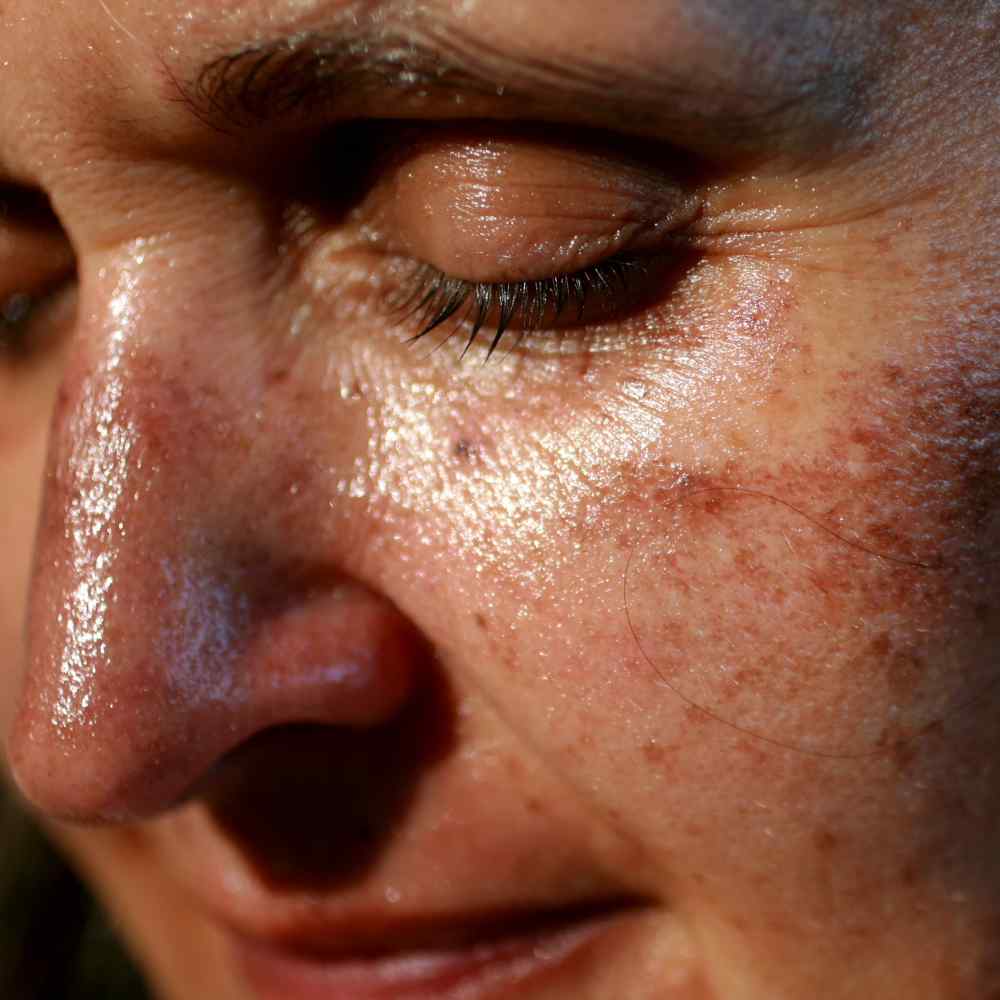
Sunlight vs. Pimples: Is Sun Good or Bad for Acne?
Ah, behold the mighty sun – the ultimate giver of warmth, Vitamin D, and that oh-so-desirable golden tan.
But hey, if you're battling acne, you're probably pondering whether soaking up its glory is a friend or foe to your fragile skin.
In this epic article, we're diving deep into the age-old debate: Is sun exposure a saint or sinner for acne? Brace yourselves for the unveiling of the sunny truth!
Acne and its Causes
Acne is caused by a variety of factors, but the main culprit is a combination of oils produced in your skin called sebum and the bacteria known as Propionibacterium acnes (P. acnes).
Sebum production usually increases during adolescence, which can cause clogged pores on the face and body. This buildup of oil, bacteria and dead skin cells create an environment where acne may occur – usually on areas like your forehead, chin, chest, or back.
Other contributing factors include diet, hormones levels, stress levels, lifestyle habits such as smoking or sleep deprivation, genetics/heredity, medications that might aggravate skin problems, or even environmental irritants like pollution or excess humidity in your home.
All these things combined will determine if acne sufferers get acne breakouts or not!

The Sun and Acne: A Complex Relationship
Sunlight, or more specifically, the ultraviolet (UV) rays it contains, can have both positive and negative effects on your skin, which makes this relationship a tad complicated. Here's how it breaks down:
The Pros of Sun Exposure for Acne
Here are the positive results of sun on your acne prone skin.
Drying Effect: Sun exposure can dry out the skin's surface, which might temporarily reduce the appearance of acne. This can be appealing if you're dealing with oily skin.
Vitamin D Production: Sunlight is a natural source of vitamin D, and this vitamin plays a role in overall skin health. Some studies suggest that maintaining adequate levels of vitamin D could be beneficial for acne management.
The Cons of Sun Exposure for Acne
Skin Damage: UV rays can wreak havoc on your skin. They can lead to premature skin aging, worsen existing acne scars, and damage the collagen fibers that keep your skin plump and youthful.
Exacerbation of Acne: Contrary to the initial drying effect, prolonged sun exposure can actually trigger the skin to produce more oil, potentially worsening acne. This is your skin's way of defending against dehydration caused by UV rays.
Hyperpigmentation Risk: If you're not diligent about applying sunscreen consistently and adequately, prolonged sun exposure can significantly increase the risk of post-inflammatory hyperpigmentation (PIH).
This condition refers to the development of stubborn dark spots that may persist even after your acne has cleared.
Protecting your skin from harmful UV rays by using sunscreen can help prevent the formation of these persistent dark spots, ensuring a smoother and more even complexion in the long run.
Skin Cancer Risk: One of the most obvious risks of spending time in the sun is the potential for sun damage, which can eventually lead to the development of skin cancer.
Prolonged exposure to harmful UV rays can cause various skin issues such as sunburn, premature aging, and an increased risk of developing melanoma, the most dangerous form of skin cancer.
Therefore, it is crucial to prioritize sun protection measures and limit sun exposure to mitigate these potential health risks.

So, What's the Verdict?
Sun exposure can provide temporary relief for blemish prone skin. The drying effect of the sun can help dry out existing acne and reduce oiliness.
Additionally, exposure to sunlight can stimulate the production of vitamin D, which is beneficial for overall skin health.
However, it is important to note that the long-term consequences of too much sun exposure are far less sunny.
Prolonged exposure to UV rays can lead to premature aging, such as wrinkles, fine lines, and age spots. Moreover, the sun can worsen existing skin issues, such as acne scars or hyperpigmentation.
Therefore, it is crucial to strike a balance and protect your skin by wearing sunscreen, seeking shade, and practicing proper skincare routines.
Tips for Sun Exposure and Acne Management
If you're determined to enjoy the sun responsibly while managing your acne, here are some tips to keep your skin healthy and protected:
Sunscreen Is Non-Negotiable
Always apply a broad-spectrum sunscreen with at least SPF 30 before heading outdoors, even if it's only for a short while.
Choose a sunscreen specifically formulated for acne-prone skin to avoid clogging pores. Look for something labeled as "non-comedogenic".
Reapply every two hours, especially if you're swimming or sweating, to ensure continuous protection.
Seek Shade
Limit your time in direct sunlight, especially during peak hours when the sun's rays are the strongest. Find shade under trees, umbrellas, or use a wide-brimmed hat to provide additional protection for your face and neck so they don't get too much sun.
Cover Up
Consider wearing lightweight, long-sleeved clothing made from breathable fabrics to shield your skin from UV exposure. A wide-brimmed hat and sunglasses can also help protect your face and eyes from sun damage.
Stay Hydrated
Counter the drying effect of the sun by staying well-hydrated. Drink plenty of water throughout the day to keep your skin moisturized from the inside out.
Additionally, using a moisturizer with hydrating ingredients can help maintain your skin's moisture barrier.
Skincare Regimen
Stick to a consistent skincare routine that includes gentle cleansers, acne spot treatments, and moisturizers. Even even acne prone skin needs hydration. A topical spot acne treatment can help when pimples pop up.
Choose skincare products that are non-comedogenic and suitable for your skin type. A dermatologist can provide personalized advice about how to treat acne and offer recommendations.
If you really want to tan without the sun, try some bronzing drops or even a self-tanning product that is proven safe for acne prone skin.
Vitamin D from Food
If you're concerned about your vitamin D levels, consider obtaining it from dietary sources like fortified foods or supplements under the guidance of a healthcare professional.
Incorporating foods rich in vitamin D such as fatty fish and egg yolks into your diet can help support your overall health.
Remember, taking care of your skin goes beyond just acne management. By following these tips, you can enjoy the sun while keeping your skin protected and healthy.

The Final Word
Whoa! So, here's the deal with sun and acne. A little sun exposure can give your skin a temporary boost, but it's like a double-edged sword, you know?
The long-term damage and increased risk of skin issues are no joke, they outweigh those short-term perks.
But fret not! We've got the golden rule for you: protect your precious skin with sunscreen and other preventive measures.
Soak up the sun responsibly, and trust me, your skin will totally thank you in the long run. You got this! 🌞✨

















